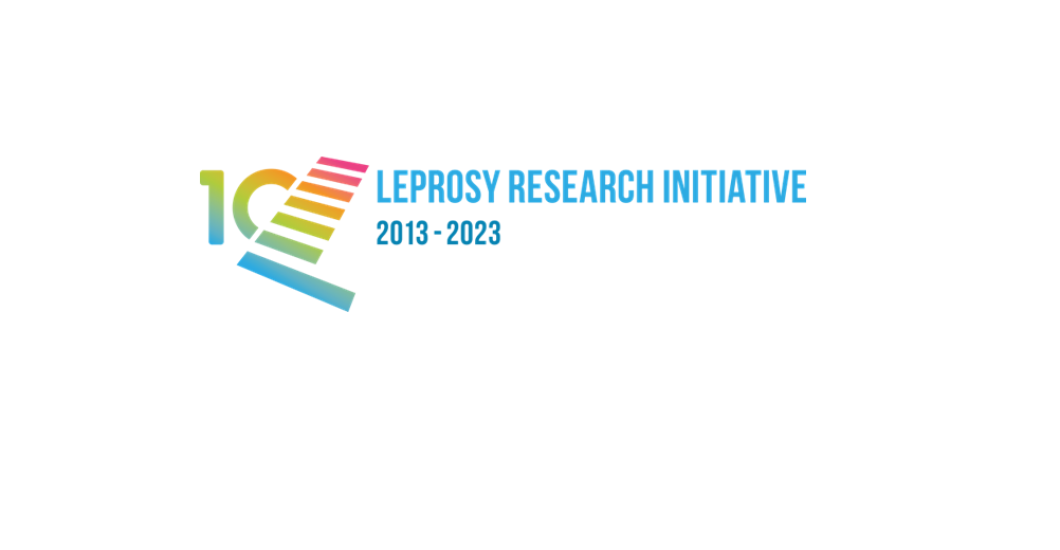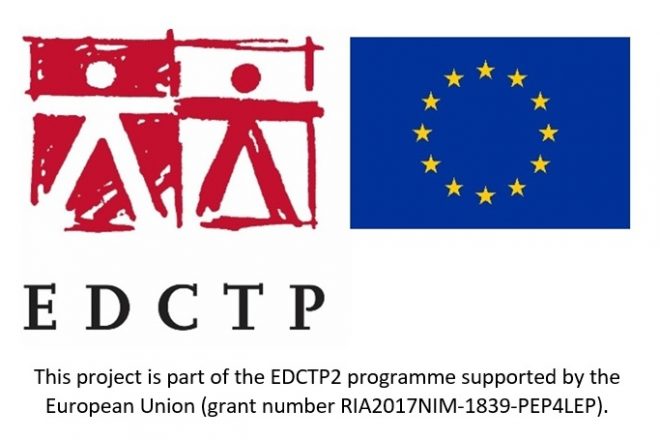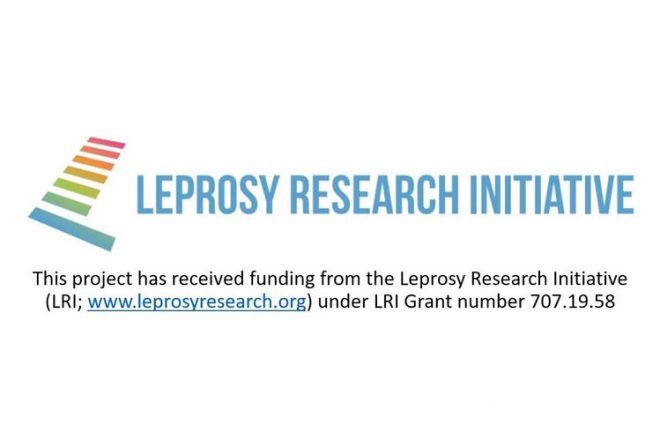Newsletter PEP4LEP – December 2023
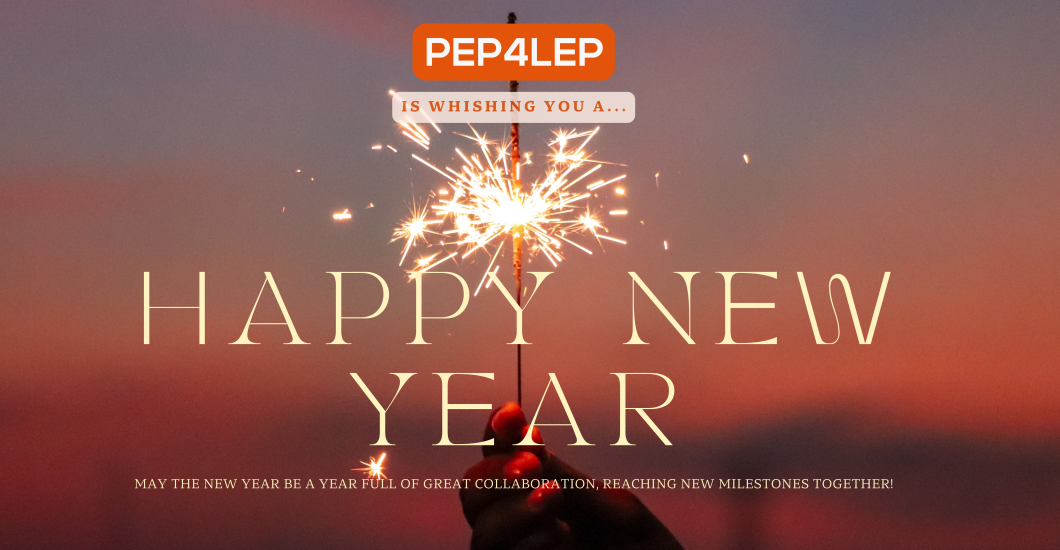
Welcome to the December edition of the bi-annual PEP4LEP project newsletter! We are here to share the latest updates on our ongoing research. In recent months, the PEP4LEP side studies have made significant progress, bringing us closer to reaching our project goals.
Another highlight of the past period is that the NLR SkinApp is now part of the Skin NTD App from the World Health Organization (WHO)!
Looking ahead, we are eager to start the final year of this collaborative research project which is supported by EDCTP2/EU and the Leprosy Research Initiative (LRI). We hope to continue our work, also after next year, overcoming the challenges the project faced because of the COVID-19 pandemic.
Stay tuned for more updates and insights in the coming year!
Country Updates
In the past five project years, a total of 15,885 contacts of leprosy patients were included in our study. They were screened for leprosy and other skin diseases. Through this project, we were able to detect nearly 8000 people with skin diseases, of which 200 new leprosy patients! After the screening process, eligible contacts received a single dose of the antibiotic rifampicin for leprosy prevention.
Ethiopia
Since rifampicin is available again in Ethiopia, the project team was able to intensify the organisation of PEP4LEP community skin camps. In the past year, 20 skin camps were organised. The study participant inclusions are also ongoing in the health centre based intervention. Additionally, the Ethiopian study team worked hard on transcribing and translating the interviews and group discussions which were conducted in the skin camps in early 2023 as part of the side studies. Soon, qualitative data collection will also start in the other research intervention. Past October, NLR research intern Sophie Vissers visited Ethiopia for the cost-effectiveness study. More information on this can be found here.
Mozambique
In the past period, Mozambique was still struggling with medication shortages at national level. Besides loose rifampicin, the full leprosy treatment combination (multidrug therapy or MDT in short) was often not available for the communities in need. The team worked hard on addressing these medication shortages at national and subnational levels. Luckily, PEP4LEP data collection did not fully stop in Mozambique. In the health centre based intervention, a total of 180 contacts were registered in project year 5. In addition, programme manager Dr. Helder Rassolo and research assistant Banú Fumane were able to collect the remaining data for the validation study of the case-detection questionnaire which was specifically developed for this project.
Tanzania
In Tanzania, data collection is progressing well. In project year 5, 21 skin camps were conducted, in which 2,059 community contacts of leprosy patients received skin screening and leprosy preventive medication when eligible. In the health facility intervention, 113 contacts were included. Qualitative data collection for the side studies started in September 2023 across three community skin camps, following a training on qualitative research methods which was organized by NLR in collaboration with the Tanzanian country team. Sophie Vissers also visited Tanzania as part of her internship on cost-effectiveness and data monitoring.
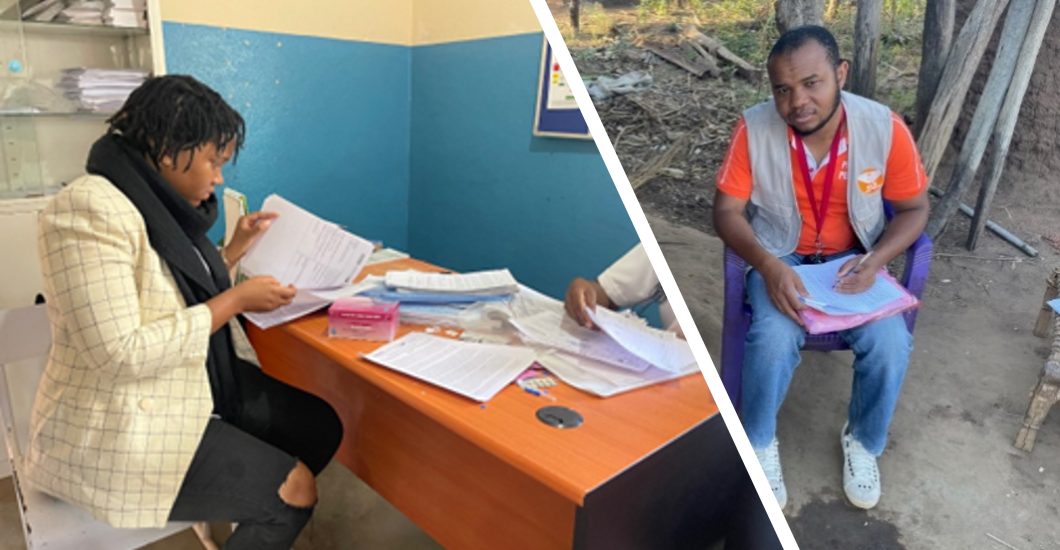
PEP4LEP Side Studies
Cost-effectiveness study
NLR intern Sophie Vissers worked with Dr. David Blok from Erasmus MC and the project staff in all countries. Mozambique was the first country where the desk-top data collection started. Sophie and Úrsula Armando, financial project controller of NLR Mozambique, are sharing their experiences on the cost-effectiveness studies:
Sophie Vissers: “By analysing the cost-effectiveness of both interventions we compare the costs and effects, and retrieve insight into which intervention might be preferable. These results will support decision-making in terms of whether to implement the skin camp intervention on a wider scale and in the long-term, potentially becoming part of national public health policies. After training the country teams, we worked together on the desk-top data collection which entailed deriving project costs from the accounting systems and transferring these to Excel sheets (our data collection instruments). This was sometimes a laborious task, but together as a team we managed to get a lot of work done! Afterwards, we worked on new data collection forms which will be used in both the skin camps and health centres, to estimate costs made by all stakeholders involved. Working with both the Tanzanian and Ethiopian teams on the desktop research has increased my understanding of the PEP4LEP project and also of the implementation of the cost-effectiveness study, it has been an interesting experience and I learned a lot! A big thank you to all PEP4LEP colleagues for the great collaboration.”
Úrsula Armando: “It is a privilege to be included in the cost effectiveness study because aside from verifying the accounting data, preparing and monitoring reports of the two interventions, I had the opportunity to acquire a great experience of analyzing which of the costs is feasible to present to the Ministry of Health so that they can replicate activities at the lowest possible cost. From now onwards my mind is not limited only to accounting data and this was thanks to the collaboration of colleagues, and especially to Sophie, who shared instruments that facilitated the study and I am happy that it was successful. Learning is a daily experience and a lifetime mission and cost-effectiveness study is my lifetime experience.”
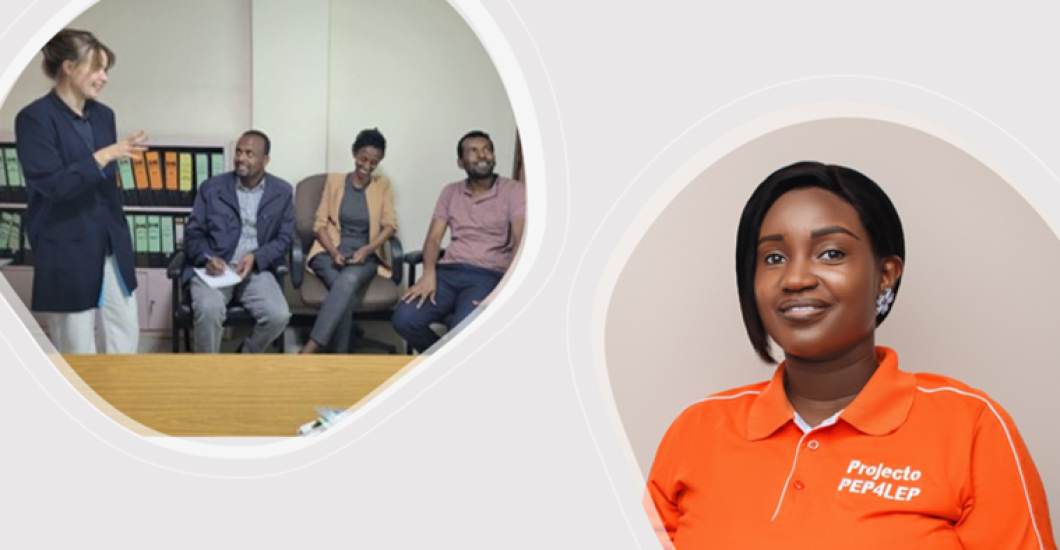
Qualitative Side Studies
In Tanzania, the qualitative side studies successfully started in three community skin camps in Tanzania. The Tanzanian team found three eager and dedicated research assistants at the start of their careers, contributing significantly to the data collection effort.
From the acceptability survey in Tanzania we learned that from the 110 adult contacts surveyed, 99% shared that they would come again if another skin camp is organized in the future. But a lower percentage (61%) would visit the skin camp again if there was no free topical skin medication available. The free skin medication seemed an important enabler for contacts of leprosy patients to visit a leprosy prevention intervention!
In Tanzania, another important finding of the qualitative studies was that sputum collection for TB testing occurs when contacts of leprosy patients in skin camps experience symptoms like coughing and night sweats. These symptoms can be a sign of TB, a disease which is a contraindication for leprosy prophylaxis. This initiative by the Tanzanian Ministry of Health in the PEP4LEP community skin camps exemplifies the enhanced integration of disease screening, thereby expanding healthcare coverage.
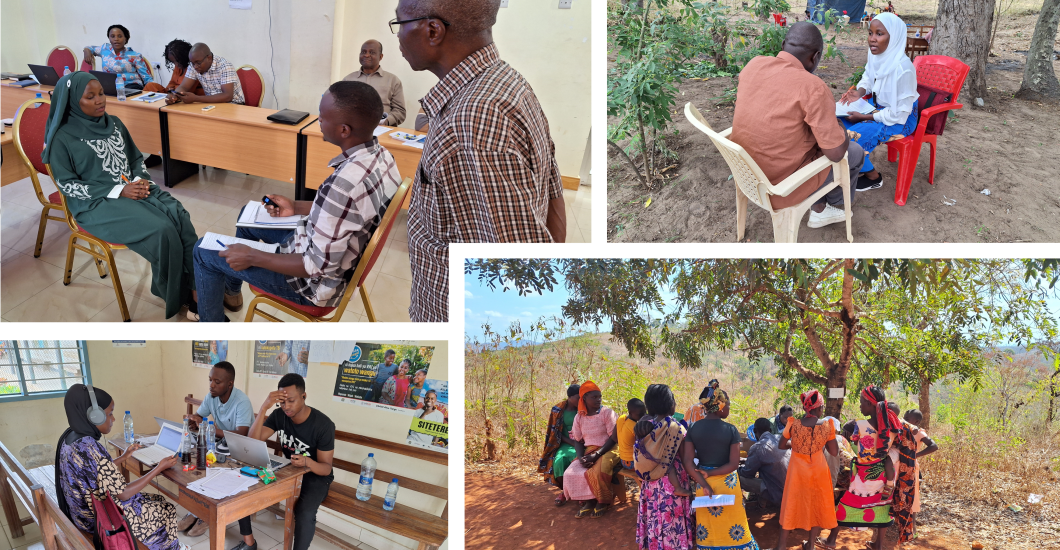
PEP4LEP team member goodbyes
We are saying goodbye and express our gratitude to two PEP4LEP team members: Tom Hambridge from Erasmus MC and Jacqueline Kodden from NLR.
Tom Hambridge worked as a data-manager and PhD student for the PEP4LEP project. He finished at Erasmus MC and we wish him a lot of success with submitting his PhD thesis!
Jacqueline Kodden worked as financial project controller for NLR since the start of the PEP4LEP project. From the New Year onwards, she will work for another organization which focusses on nature education and sustainability, also a very important topic. We will miss her great insights and collaboration! We wish her all the best at her new job!
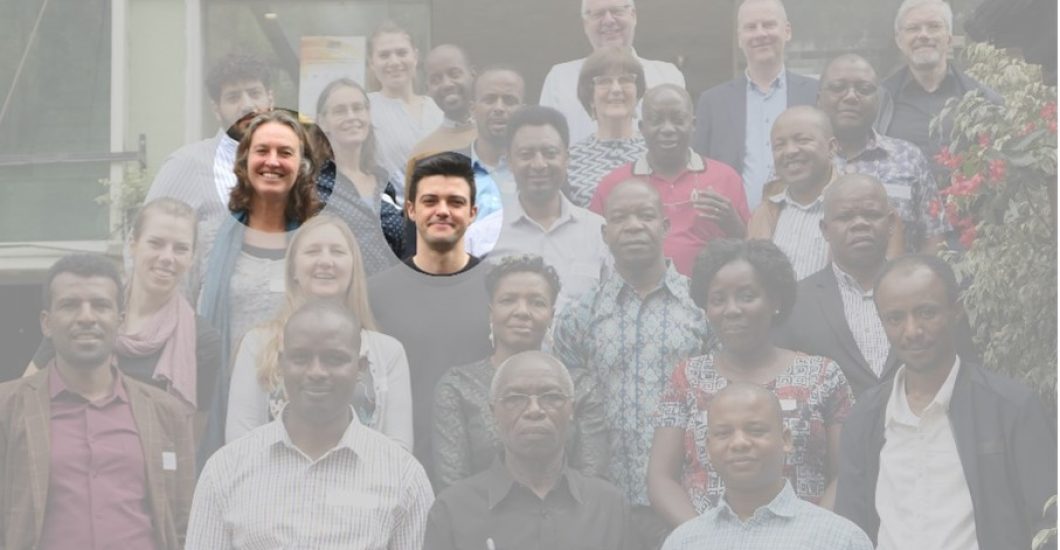
NLR’s SkinApp is now part of the WHO Skin NTD App!
In October 2023, the WHO announced the release of an enhanced version of its Skin NTDs App, a valuable tool designed to support front-line health workers in diagnosing and managing skin-related neglected tropical diseases (skin NTDs). This exciting development is the result of a collaborative effort between WHO and NLR. The content of the NLR SkinApp was merged into the new WHO app. Findings from the SkinApp validation study, which is part of PEP4LEP, were also taken up in the new WHO app. During the PEP4LEP study, the NLR SkinApp will also remain available in the app stores. The updated WHO Skin NTD App is downloadable free of charge on both Android and iOS phones. We would like to thank Dr. José Postigo from WHO and the app builders (Appelit, UniversalDoctor) for this great achievement! More information on the WHO Skin NTD App can be found here.
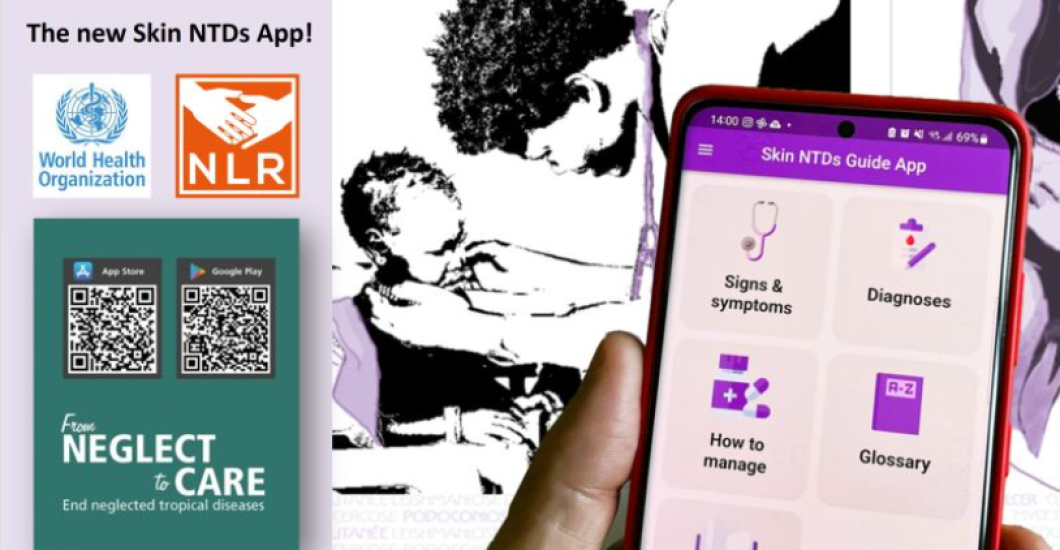
Infolep.org published PEP4LEP related SOPs on leprosy prevention
A single dose rifampicin can effectively reduce the risk of developing leprosy in contacts of leprosy patients. Scale up of this intervention is recognized as a key component in the Global Leprosy Strategy 2021–2030 “Towards zero leprosy”. NLR worked on Standard Operating Procedures (SOPs) that provide a structured approach to support the implementation of SDR-PEP interventions. This package of SOPs can be helpful for leprosy programme managers, health care workers, and organisations involved in implementing chemoprophylaxis for leprosy prevention. The PEP4LEP SOPs, amongst others, functioned as input for these generalized SOPs which are now open-access available at infolep.org.
Other announcements from the leprosy field
This year, LRI is pleased to announce two calls for proposals for budget round 2025; the regular grant and the new RESILIENTD grant, in collaboration with Anesvad Foundation. For this last grant LRI invites research proposals on the social determinants of health in the context of skin NTDs, including leprosy, with a focus on Sub-Saharan Africa. The application portal has opened. Please note the deadline for submission for both calls is January 26th, 2024 at 23:59 (CET).
